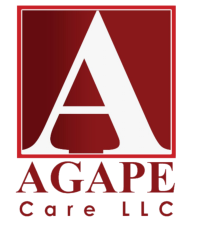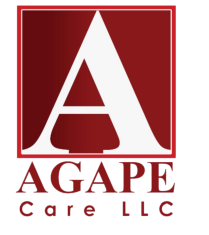Managing medication for elderly parents can be a challenging but essential task to ensure their health and well-being. As our parents age, they often require multiple medications to manage various health conditions. Keeping track of these medications, understanding their potential side effects, and ensuring they are taken correctly are vital responsibilities for caregivers.
Understanding your parent’s medication needs is the first step. Elderly individuals are often prescribed common medications for chronic conditions such as high blood pressure, diabetes, and arthritis. However, it’s crucial to be aware of potential side effects and interactions between these medications. Regular reviews with healthcare providers can help to adjust dosages and ensure that the medications are still necessary and effective.
Organization plays a significant role in managing medications. Using pill organizers and dispensers can simplify the process and reduce the risk of missed or incorrect dosages. Proper storage and keeping a consistent medication schedule are also important. By organizing medications effectively, you can make the routine easier and more reliable for your aging parents.
Communication with healthcare providers is crucial for managing medications. Asking the right questions and keeping an updated list of medications can help prevent dangerous interactions and side effects. Regular check-ups allow for ongoing assessment and necessary adjustments to the medication regimen.
Promoting adherence to medication schedules is essential. Setting reminders and alarms, simplifying the medication routine, and monitoring dosages can all help ensure that your parents take their medicines as prescribed. With these strategies in place, you can help maintain their health and prevent complications.
Common Medications for Seniors
As our parents age, certain medications become more common in their daily routines. These can include blood pressure medications, cholesterol-lowering drugs, diabetes medications, and treatments for arthritis and pain relief. Medications for heart conditions, like beta-blockers and anticoagulants, are also frequently prescribed. Each of these medications is important for managing specific health conditions and improving quality of life.
Potential Side Effects and Interactions
Medications can have side effects that vary from mild to severe. For seniors, even common side effects like dizziness or gastrointestinal issues can have significant impacts. Drug interactions are another critical concern. When multiple medications are taken, they can interfere with each other, leading to harmful effects. For example, combining blood thinners with certain pain medications can increase bleeding risks. Being aware of these potential interactions is essential for preventing adverse effects.
Importance of Regular Medication Reviews
Regular medication reviews are crucial for ensuring the safety and effectiveness of the medication regimen. Schedule periodic check-ups with healthcare providers to review and update your parent’s medications. During these reviews, the doctor can assess whether the current medications are effective or if adjustments are needed. This routine evaluation helps to optimize treatment and reduce the risk of unnecessary side effects or interactions.
Organizing and Storing Medications
Pill Organizers and Dispensers
Using pill organizers and dispensers makes managing multiple medications much easier. Pill organizers come in various forms, such as daily or weekly cases, which can help in pre-sorting medications. Electronic dispensers are also available, offering timed releases to ensure medications are taken at the correct times. These tools help to prevent missed doses and reduce confusion about which medications to take and when.
Proper Storage Methods
Storing medications properly is essential to maintain their effectiveness. Keep medications in a cool, dry place, away from direct sunlight. Always store medications in their original containers with labels intact to avoid confusion. Some medications may require refrigeration, so be sure to follow storage instructions carefully. Safe storage also means keeping medications out of reach of children and pets to prevent accidental ingestion.
Keeping a Medication Schedule
Maintaining a consistent medication schedule is vital for effectiveness. Create a simple, easy-to-follow schedule that aligns with daily routines. You can use charts, calendars, or even mobile apps to track medication times. Setting reminders or alarms on phones can help in ensuring medications are taken as prescribed. A clear schedule helps in maintaining consistency and reduces the risk of missed or double doses, which can be detrimental to health.
Communicating with Healthcare Providers
Questions to Ask Doctors and Pharmacists
Effective communication with healthcare providers is key to managing your parent’s medications. Always ask doctors and pharmacists specific questions about new prescriptions. Inquire about the purpose of the medication, the proper dosage, and potential side effects. Ask if there are any interactions with other medications your parent is currently taking. Understanding why a medication is prescribed and how it should be taken helps to ensure its effectiveness and safety.
Keeping an Updated Medication List
Maintaining an updated list of all medications is crucial. This list should include the name of each medication, dosage, frequency, and the prescribing doctor. Keep this list handy during doctor visits or when consulting with pharmacists. An accurate medication list helps healthcare providers make informed decisions and avoid potential interactions. It also ensures consistency and accuracy in managing your parent’s health care routine.
Importance of Regular Check-Ups
Regular medical check-ups are vital for monitoring your parent’s health and reviewing their medication regimen. During these visits, doctors can assess the effectiveness of current medications and make necessary adjustments. These check-ups provide an opportunity to discuss any side effects or concerns. Regular visits also ensure that any new health issues are promptly addressed and treated, maintaining the overall health and well-being of your parents.
Tips for Promoting Adherence to Medication
Setting Reminders and Alarms
Setting reminders and alarms is an effective way to promote adherence to medication schedules. Use alarms on smartphones, clocks, or dedicated medication reminder apps to signal when it’s time to take medication. These alerts help prevent missed doses and ensure medications are taken consistently. You can also set up visual reminders, like placing medication near daily items such as toothbrushes or coffee makers, to help your parents remember.
Simplifying Medication Routines
Simplifying the medication routine can make it easier for your parents to follow. If possible, try to coordinate medications so they are taken at the same time each day. This reduces the complexity and helps establish a routine. Pre-sorting medications into weekly pill organizers can also simplify the process. Consult with healthcare providers to see if any medications can be adjusted to fewer doses per day.
Monitoring and Adjusting Dosages
Regularly monitor your parents taking their medications to ensure proper adherence. Check that they are taking the right doses at the correct times. If you notice any side effects or issues, consult with their healthcare provider for possible adjustments. It’s important to communicate any changes in their health or lifestyle that might affect their medication needs. Keeping close observation helps in making timely adjustments and maintaining their health.
Conclusion
Managing medications for elderly parents can be challenging but is crucial for their health and well-being. From understanding their specific medication needs to organizing and storing these medicines properly, every step is important. Communicating effectively with healthcare providers ensures that any concerns are addressed and medications are used safely and effectively.
Promoting adherence and simplifying routines helps in maintaining consistency and preventing missed doses. Monitoring and making necessary adjustments further ensure that medications continue to meet their needs.
If you need assistance with managing medications for your elderly loved ones or any other home care services, Agape Care LLC in Houston, Texas, is here to help. Contact us today to learn how we can support you and your family.


